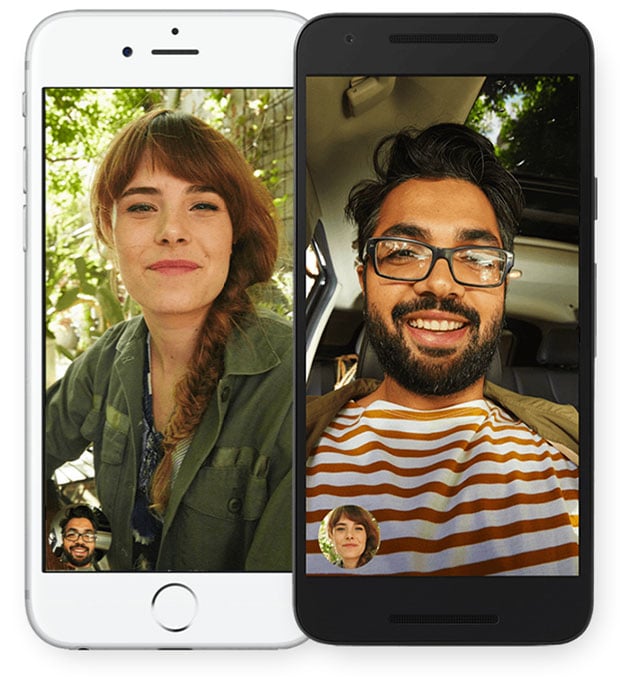Google Duo Now Allows Calls To Android Contacts That Don’t Have App Installed
If you make video calls on your Android device, then you're probably familiar with Duo, Google's app that was designed exactly for that (basically a Hangouts replacement). One of the app's shortcomings has been an inability to call people who not on your contacts list and have not registered with the service. Well, we have good news—Google has not added that feature, allowing Duo users to dial up and video chat with anyone on their contacts list.
This works with audio-only calls as well. Users who received a call from a Duo user but do not have Duo installed themselves can answer the call by dragging the phone icon up. They can also mute their microphone, change cameras, and hang up on the caller. If the user navigates away from the call while still connected, there is a persistent button that will put the Duo caller back into view.

Obviously Google would prefer it if every Android user decided to roll with Duo for their video messaging needs. As such, at the conclusion of a call between a Duo user and a non-Duo user, the latter will see a prompt imploring them to install the app, if they are interested in starting video calls of their own. Google also gives the user an option to block a caller from contacting them via Duo.
It's clever way for Google push its app. What makes this possible is a feature of Google Play services called App Preview Messaging. This allows users to use supported messaging apps (like Duo) to contact people who do not have the app installed. Google has been making the feature available to developers through an early access preview program with the promise of opening it up to all developers of messaging apps at a later date. It's not clear if Google has done that yet.
App Preview Messaging first debuted alongside Allo in 2016. At the time, the implementation was a bit clunky, and the messaging window that would appear on other devices didn't really look like Allo. Google has made refinements to the feature since then, to the point where it felt comfortable pushing it as a feature upgrade to Duo.
This works with audio-only calls as well. Users who received a call from a Duo user but do not have Duo installed themselves can answer the call by dragging the phone icon up. They can also mute their microphone, change cameras, and hang up on the caller. If the user navigates away from the call while still connected, there is a persistent button that will put the Duo caller back into view.

Obviously Google would prefer it if every Android user decided to roll with Duo for their video messaging needs. As such, at the conclusion of a call between a Duo user and a non-Duo user, the latter will see a prompt imploring them to install the app, if they are interested in starting video calls of their own. Google also gives the user an option to block a caller from contacting them via Duo.
It's clever way for Google push its app. What makes this possible is a feature of Google Play services called App Preview Messaging. This allows users to use supported messaging apps (like Duo) to contact people who do not have the app installed. Google has been making the feature available to developers through an early access preview program with the promise of opening it up to all developers of messaging apps at a later date. It's not clear if Google has done that yet.
App Preview Messaging first debuted alongside Allo in 2016. At the time, the implementation was a bit clunky, and the messaging window that would appear on other devices didn't really look like Allo. Google has made refinements to the feature since then, to the point where it felt comfortable pushing it as a feature upgrade to Duo.

